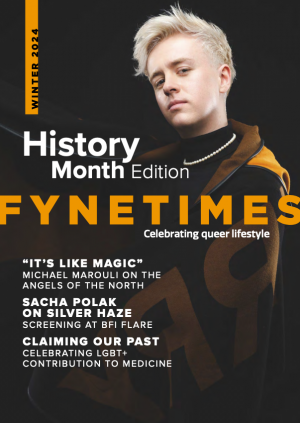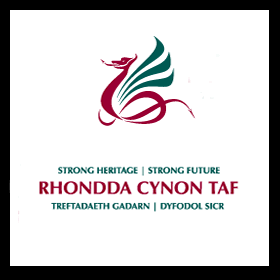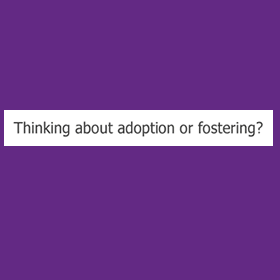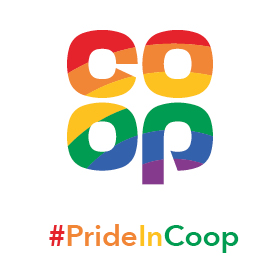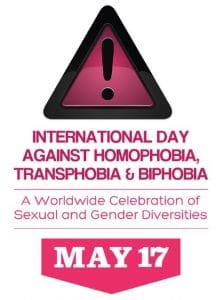 Across the world, struggles against violence and discrimination continue to rage on. Created in 2004, the International Day against Homophobia, Transphobia and Biphobia on May 17 aims to draw attention to the global plight of LGBT people. May 17 is now, 14 years later, established as the most important date for mobilising marginalised communities to seek recognition and justice. Celebrated in more than 130 countries, May 17 is a chance for millions around the world to organise and unify under the call for equal human rights for everyone, no matter their gender, identity or sexual orientation.
Across the world, struggles against violence and discrimination continue to rage on. Created in 2004, the International Day against Homophobia, Transphobia and Biphobia on May 17 aims to draw attention to the global plight of LGBT people. May 17 is now, 14 years later, established as the most important date for mobilising marginalised communities to seek recognition and justice. Celebrated in more than 130 countries, May 17 is a chance for millions around the world to organise and unify under the call for equal human rights for everyone, no matter their gender, identity or sexual orientation.
May 17 was chosen because it was on that day in 1990 that the World Health Organisation (WHO) declassified homosexuality as a mental disorder. The WHO published its International Classification of Diseases and Related Health Problems (ICD) in 1948 and claimed that homosexuality was a form of sexual deviance that was presumed to reflect an underlying personality disorder. This held until 1990 despite no evidence being found to support it. Facts like these truly highlight the necessity for projects like May 17. While we might imagine that homophobia and discrimination are consigned to the distant past, it is palpably within living memory that such opinions enjoyed legitimisation from the law and from respected organisations like the WHO.
The theme for May 17 this year is ‘Alliances for Solidarity’. No battle can be truly won if others are left by the wayside and this year’s theme hopes to strengthen the alliances between different organisations that can often work in isolation of one another. Realising the power of collaboration in all aspects of political and social activism is an important step towards breaking down impediments to change. Similarly, new partnerships can be forged and new allies found in this spirit and the overall power of the movement can increase exponentially. The organisers hope that the theme this May 17 will be a reminder of the absolute necessity to show solidarity within the LGBT community. The rights of one group are a sine qua non for another group, and familiarity with and respect for the plights of different groups under the LGBT banner must be the first step towards emancipation.
This theme also reflects the fact that when it comes to changes in legal and political rights, the effects are totalising. It is incumbent on all in society to realise the various intersections of race, gender, class, sexual orientation and disability that can re-double the invisibility suffered by members of the community. If each separate group is interested solely on establishing their rights within the existing structure of power then the emancipation of one identity will necessarily come at the expense of the others as in a zero-sum game.
This notion of intersectionality is crucial for the success of May 17. Internationally speaking, there is huge variance in the legal status of gender identities and sexual orientations around the world. The International Lesbian, Gay, Bisexual, Trans and Intersex Association (ILGA) publishes a yearly report, State-Sponsored Homophobia: A World Survey of Sexual Orientation Laws – Criminalisation, Protection and Recognition. Its results are astounding. They reveal the horrifying global ubiquity of the criminalisation of homosexual acts, with eight states implementing the death penalty for same-sex sexual acts.
Often it seems that LGBT struggles are given a western voice rendering non-western groups invisible. Another revealing element of the ILGA report is the extent to which homophobia is actually a western export. The colonial possessions of the UK especially suffered under a penal code that criminalised homosexuality and homosexual acts. It was not until they gained independence that their laws could change. This again reflects the idea that historical power structures are just as important in identifying barriers to change as current ones are.
Events are taking place across the world to mark May 17. A host of different companies, institutions and activist groups will be coming together to stand in solidarity against the discrimination faced by the LGBT community. The official website for the global campaign can be used to make connections, organise and register an event of one’s own. It also provides ideas for how teachers, employers and activists can get involved as well as all the material one might need to make the event a safe and lasting success. Together, and only together, can we further the fight against discrimination across the world.

